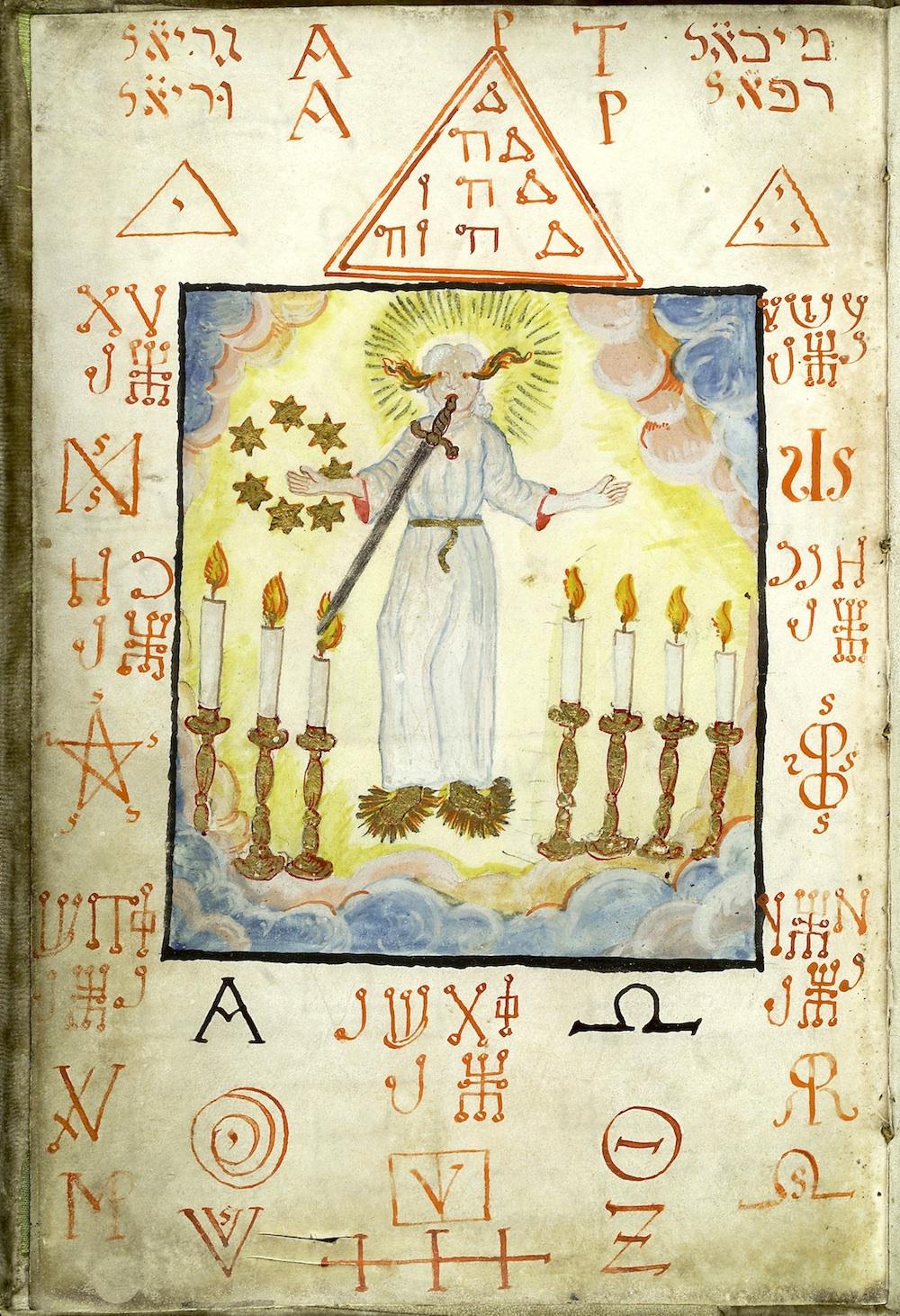
According to the Book of Revelation, the returning Christ arrives surrounded by seven candlesticks. In its author’s prophetic dream, “his head and his hairs were white like wool, as white as snow; and his eyes were as a flame of fire.” From his mouth issues “a sharp sword with which to strike down the nations.” It’s a startling image, created for symbolic purposes. Without a key to what those symbols mean, the text remains obscure. It is, after all, a vision given to a mystic hermit exiled on an island.
Many a Revelation-inspired magical grimoire from succeeding centuries also remains nearly incomprehensible to non-adepts. Such is the case with the “strange 18th-century manuscript called Clavis Inferni (key of hell),” as Benjamin Breen writes at Slate. “Filled with invocations, cryptic sigils, and paintings of supernatural beings” — such as the illustration from Revelation above — “the book defies interpretation — as it was meant to do.” Also, like Revelation, the text’s authorship is mysterious, and yet significant to our understanding of its intent.
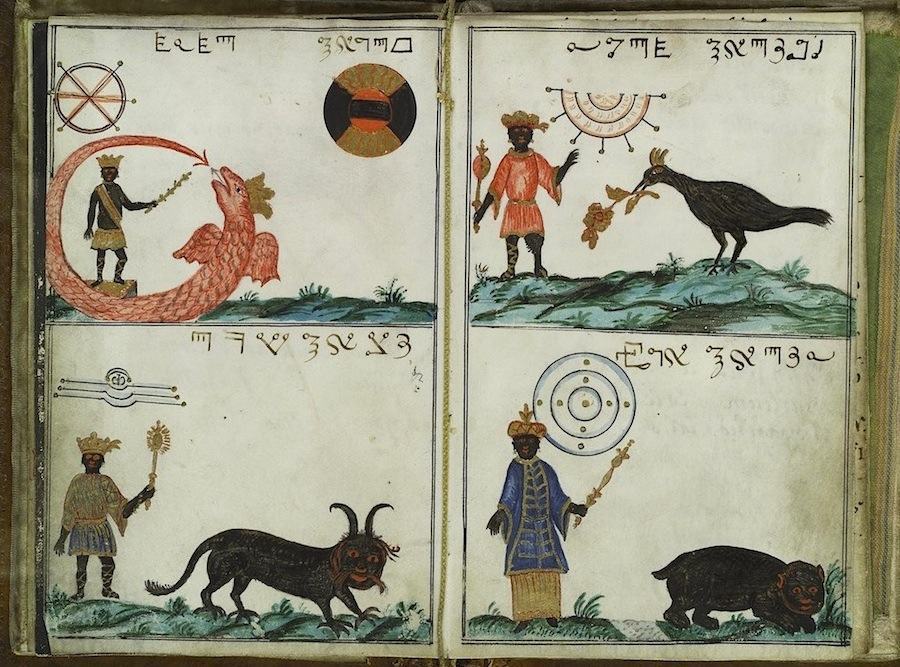
The Key of Hell is attributed to a Cyprianus, a name that “probably refers to St. Cyprian of Antioch (d. 304 CE),” Breen writes in a post at Atlas Obscura, “a very common apocryphal attribution for medieval magical texts, since Cyprian was reputed to have been a powerful magician and demon-summoner before converting to Christianity.” The use of pseudoepigraphy — an author assuming the name of a long-dead figure — was common practice throughout the history of both theological and alchemical writing. Rather than an attempt at deception, it could signal the continuation of a tradition of occult knowledge.
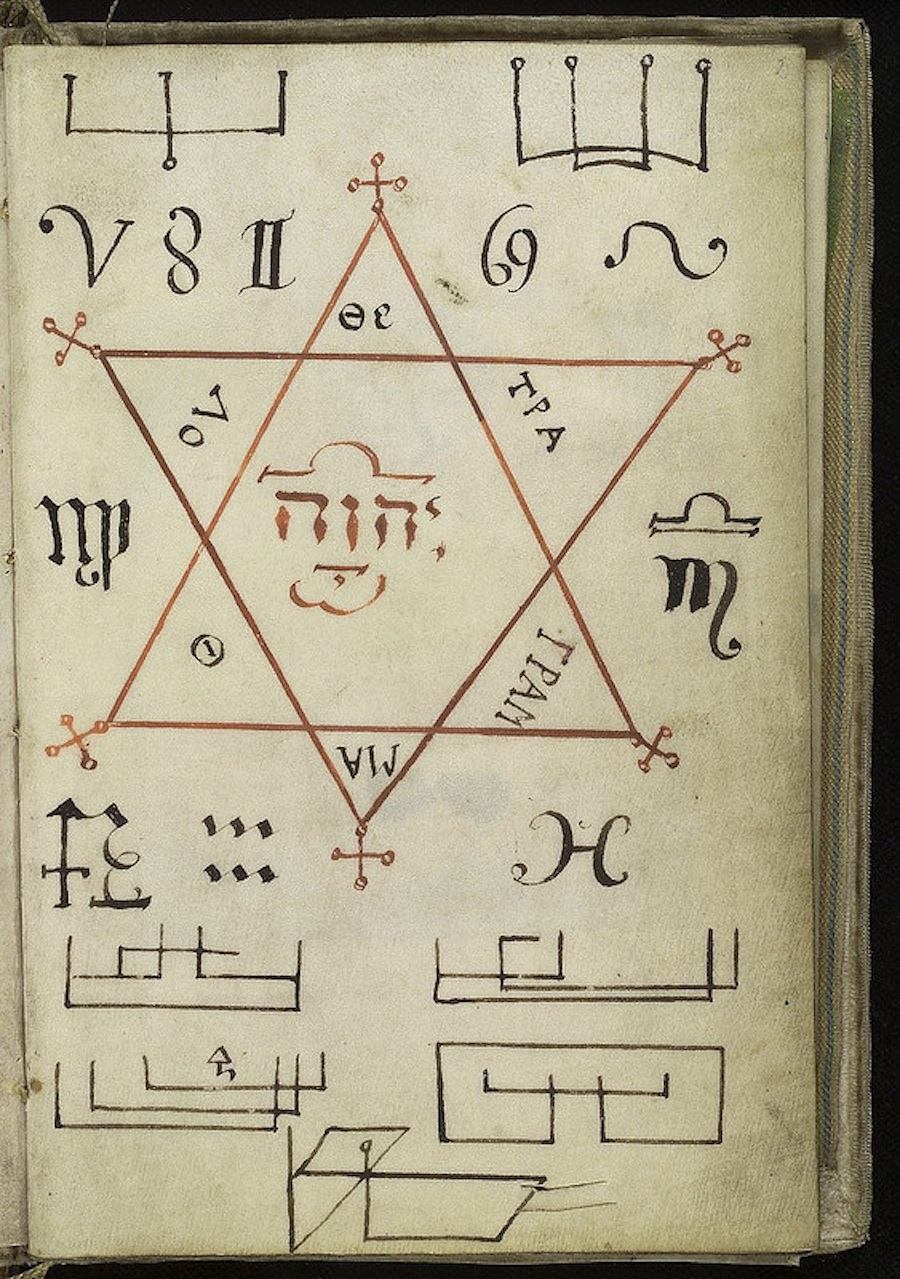
The title page of the Key of Hell “seems to date it to 1717,” writes Breen, but a Sotheby’s catalogue entry claims, “the script seems to be of the late 18th century” and dates it to 1775. At the Wellcome Library — who host the text online in its entirety — we find this “Harry Potter-esque” origin story:
Also known as the Black Book, [the Key of Hell] is the textbook of the Black School at Wittenberg, the book from which a witch or sorcerer gets his spells. The Black School at Wittenberg was purportedly a place in Germany where one went to learn the black arts.
Written in Latin, Greek, Hebrew, and “the Magical Alphabet devised by occultist Cornelius Agrippa in his Third Book of Occult Philosophy from 1510,” notes Flashbak, the manuscript is “filled with invocations to spirits and demons — including a Hebrew invocation for summoning God.” (It also includes helpful instructions for banishing summoned spirits.) The manuscript’s full Latin title — Clavis Inferni sive magic alba et nigra approbata Metatrona — translates to “The Key of Hell with white and black magic approved by Metatron,” an archangel in the Talmudic and Kabbalist traditions. The use of this name suggests the spells within come from a higher authority.
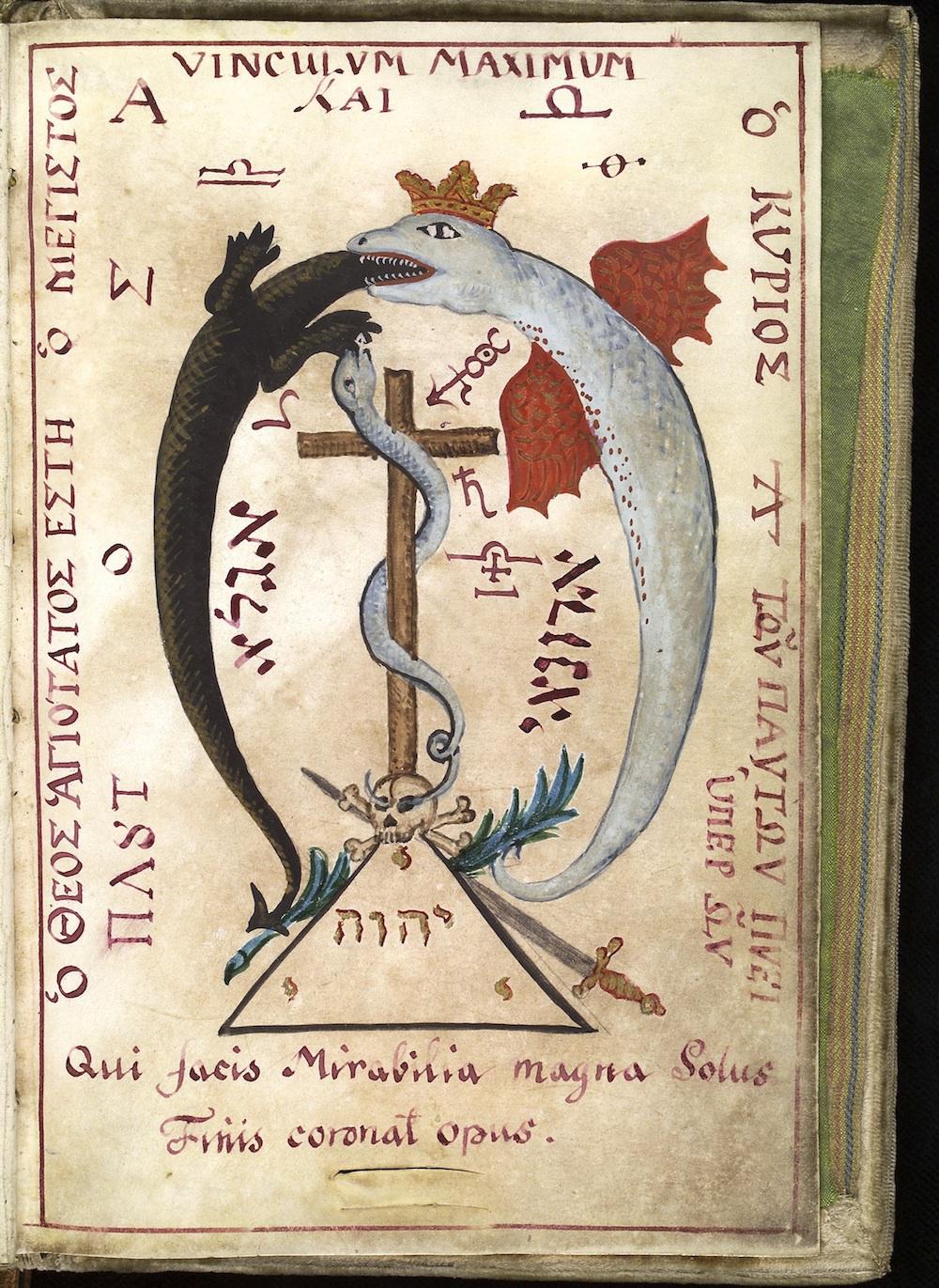
Breen, however, found some unusual commentary on the book’s possible author, including the idea in Denmark that Cyprianus was “a fellow Dane so evil during his lifetime that when he died the devil threw him out of Hell,” writes professor of Norwegian literature Kathleen Stokker. Cyprianus was so enraged by this treatment that “he dedicated himself to writing the nine Books of Black Arts that underlie all subsequent Scandinavian black books.” Another apocryphal story identifies Cyprianus as a “ravishingly beautiful” Mexican nun from 1351 (?!) who met a “gory” end.
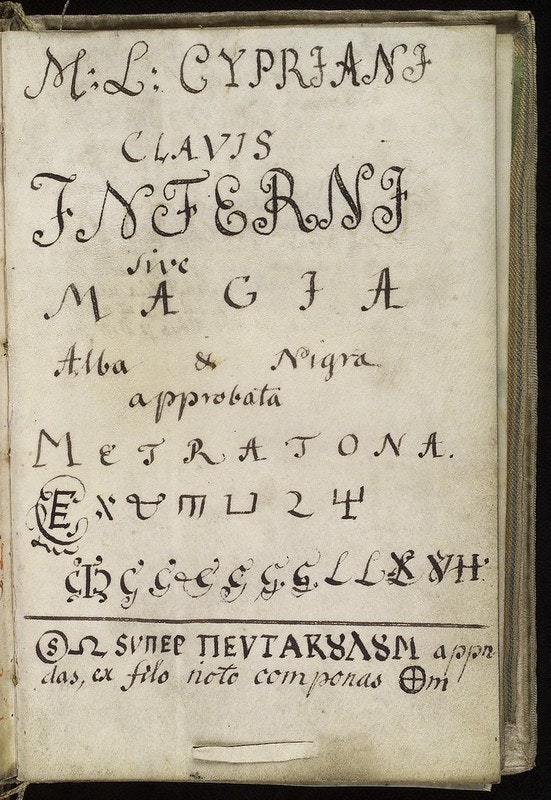
Whoever wrote the Key of Hell, and for whatever reason, they left behind a fascinating book of sorcery full of curious illustrations and a cryptic cosmology. See Breen’s attempts to decipher some of its key symbols here and make your own with the full text at the Wellcome Library.
Related Content:
Josh Jones is a writer and musician based in Durham, NC. Follow him at @jdmagness
0 Commentaires